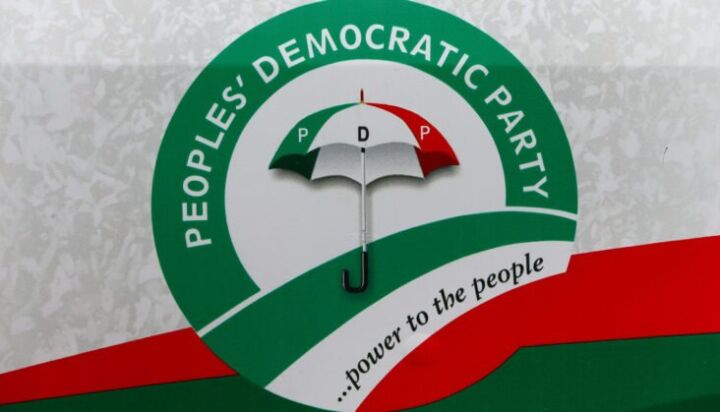In a significant legal development, the Benue State High Court in Makurdi has issued an injunction preventing the Peoples Democratic Party (PDP) from proceeding with its planned state congress in Benue State.
This judicial order, handed down by Justice Theresa Igoche, represents a substantial setback for the PDP’s organisational activities within the state and adds a layer of complexity to the internal dynamics of the party.
The court’s decision follows a lawsuit initiated by a group of plaintiffs, including Igbawuwa Andover Alfred and others, who sought to challenge the planned congress.

The legal action was directed not only against the PDP as an entity but also against several of its key officials.
These include the Acting National Chairman, the National Organising Secretary, and the Benue State Caretaker Committee Chairman, all of whom were named as defendants in the suit.
The plaintiffs, represented by the legal team led by F.T. Anongo, approached the court with an application for an interim injunction.
Their primary aim was to prevent the PDP from going ahead with the state congress scheduled for 31 August 2024.
The plaintiffs argued that proceeding with the congress could lead to irreparable harm and further deepen the internal discord within the party, particularly in the context of the ongoing dispute over the legitimacy of certain ward and local government congresses in various parts of the state.
In her ruling, Justice Igoche granted the requested interim injunction, effectively barring the PDP from holding the congress until the legal issues raised by the plaintiffs are fully resolved.
This decision underscores the importance of ensuring that internal party processes comply with legal standards and respect the rights of all party members.
The injunction also extends to the recognition of certain lists of delegates from specific wards and local governments.
The court specifically ordered that the PDP should not recognise any list of delegates arising from congresses held in the following local government areas: Makurdi, Vandeikya, Ukum, Logo, Gwer West, Gwer East, Katsina-Ala, Ado, Okpokwu, Ogbadibo, Oju, Obi, Otukpo, Apa, and Agatu.
This aspect of the ruling highlights the contested nature of the delegate selection process in these areas and reflects broader concerns about the fairness and transparency of the party’s internal electoral procedures.
The implications of this injunction are far-reaching for the PDP in Benue State.
The inability to conduct the state congress as planned could potentially disrupt the party’s preparations for upcoming elections and weaken its organisational structure at a critical time.
Moreover, the ruling brings to the fore the ongoing internal conflicts within the PDP, which have been simmering beneath the surface but are now being played out in the open through legal channels.
This case also raises broader questions about the role of the judiciary in regulating the internal affairs of political parties.
While courts are traditionally reluctant to interfere in the internal workings of political parties, especially in matters related to delegate selection and congresses, this injunction demonstrates that the judiciary can and will intervene when there are allegations of legal or procedural violations.
It serves as a reminder to political parties that their internal processes must be conducted in accordance with the law and that the courts remain a viable avenue for aggrieved members to seek redress.
As the legal battle unfolds, all eyes will be on the subsequent hearings and the eventual outcome of the case.
The ruling on the interim injunction is only the beginning of what promises to be a protracted legal dispute with potentially significant consequences for the PDP in Benue State.
The court’s final decision will likely have a lasting impact on the party’s future in the region and could set a precedent for how similar disputes are handled in other states.
In conclusion, the Benue State High Court’s decision to halt the PDP’s state congress is a critical juncture in the ongoing legal struggle within the party.
It underscores the importance of legal oversight in ensuring the integrity of political processes and highlights the challenges facing the PDP as it navigates internal divisions and external scrutiny.
As the case progresses, the outcomes will not only shape the future of the PDP in Benue State but could also influence the broader landscape of party politics in Nigeria.
Support InfoStride News' Credible Journalism: Only credible journalism can guarantee a fair, accountable and transparent society, including democracy and government. It involves a lot of efforts and money. We need your support. Click here to Donate
